How I exposed MI5's lie about its violent abusive agent
- Published
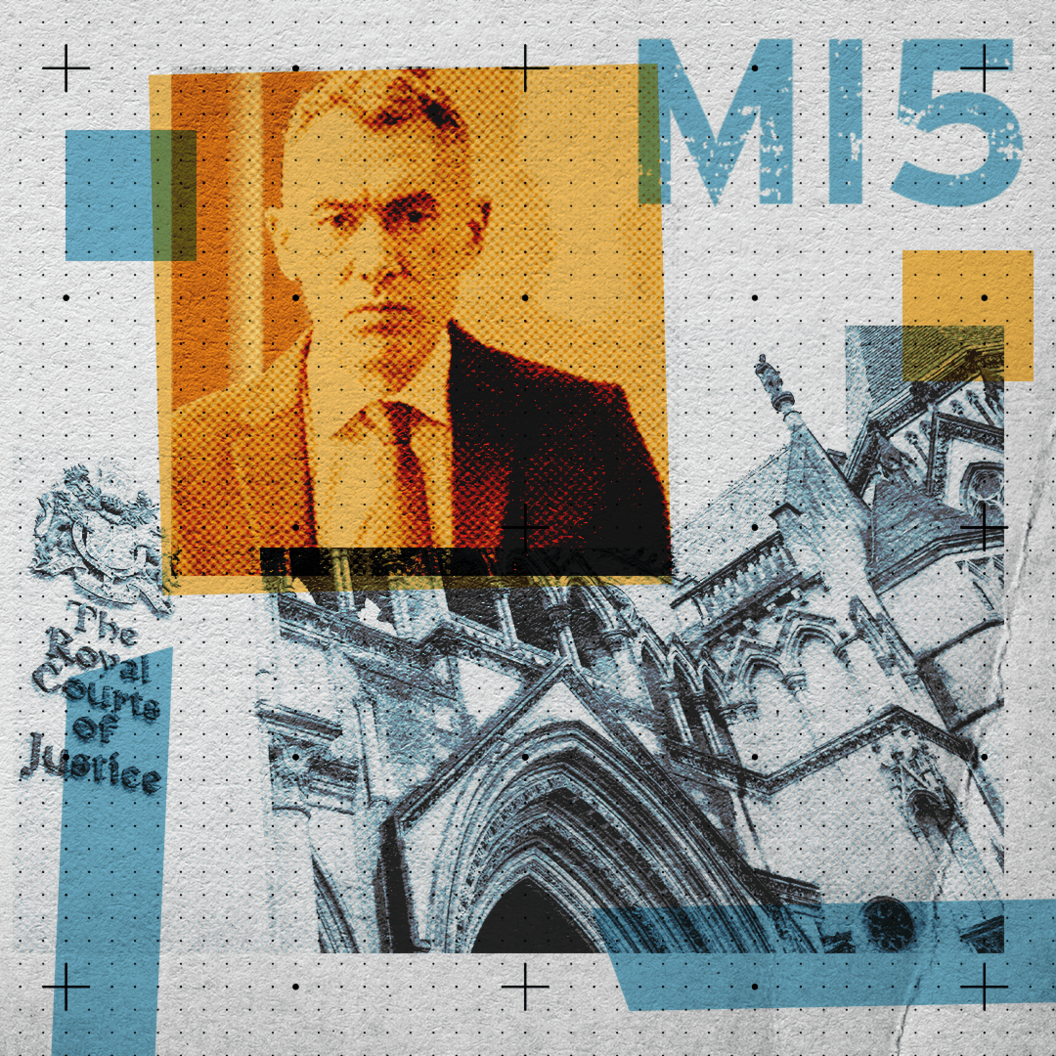
Spies lie, but they are not meant to get caught.
On a wet Friday evening in December, three MI5 lawyers sat in a room at the BBC's headquarters in London. On the other side of the table were the BBC's lawyers and me. No MI5 officers were present, after we refused a request for the meeting to be secret.
After exchanging strained smiles, we got down to business - and proved to them that the Security Service had been giving false evidence to the courts.
The meeting took place after I told MI5 in November that we were planning to report it had lied and offered it a chance to comment. In response, the Security Service insisted - aggressively so - that it had been entirely honest.
What it hadn't realised until the December meeting, was that I had hard evidence to prove its position was false.
The revelation of the false evidence matters because it raises serious concerns about how reliable MI5's evidence is in the courts, where assessments from the Security Service are given enormous deference.
It also raises fresh doubts about whether MI5 can continue with a core policy of secrecy - after we revealed it was applying it selectively.
The organisation's first lie came when the government took the BBC to the High Court in 2022 to block a story about a right-wing extremist working as an MI5 agent - the term for a paid and authorised informant.
Former Attorney General Suella Braverman failed to prevent us publishing the story but succeeded in getting an order preventing the man from being identified, having argued he would be in danger. As a result, the man is known publicly only as X.
We argued he should be identified so women could be warned about such a predatory and violent man. X had used his MI5 role to coercively control his ex-partner, known publicly by the alias Beth. He was physically and sexually abusive, and was filmed threatening to kill her and then attacking her with a machete.
During the legal proceedings, MI5 said it could publicly neither confirm nor deny (NCND) whether X was an agent, in line with its long-standing policy.
In public, MI5 emphasises the fundamental role of the NCND policy, which it says it follows in relation to its agents. Any exceptions are said to undermine the secrecy that protects such men and women and to damage national security.
But then, during the proceedings, a senior MI5 officer - a deputy director of the organisation and senior counter-terrorism officer, known in court as Witness A - mentioned some phone calls involving me.
In a corporate witness statement, Witness A said an MI5 representative had spoken to me at an earlier date. This came after the Security Service became aware the BBC intended to include X in an investigative story.
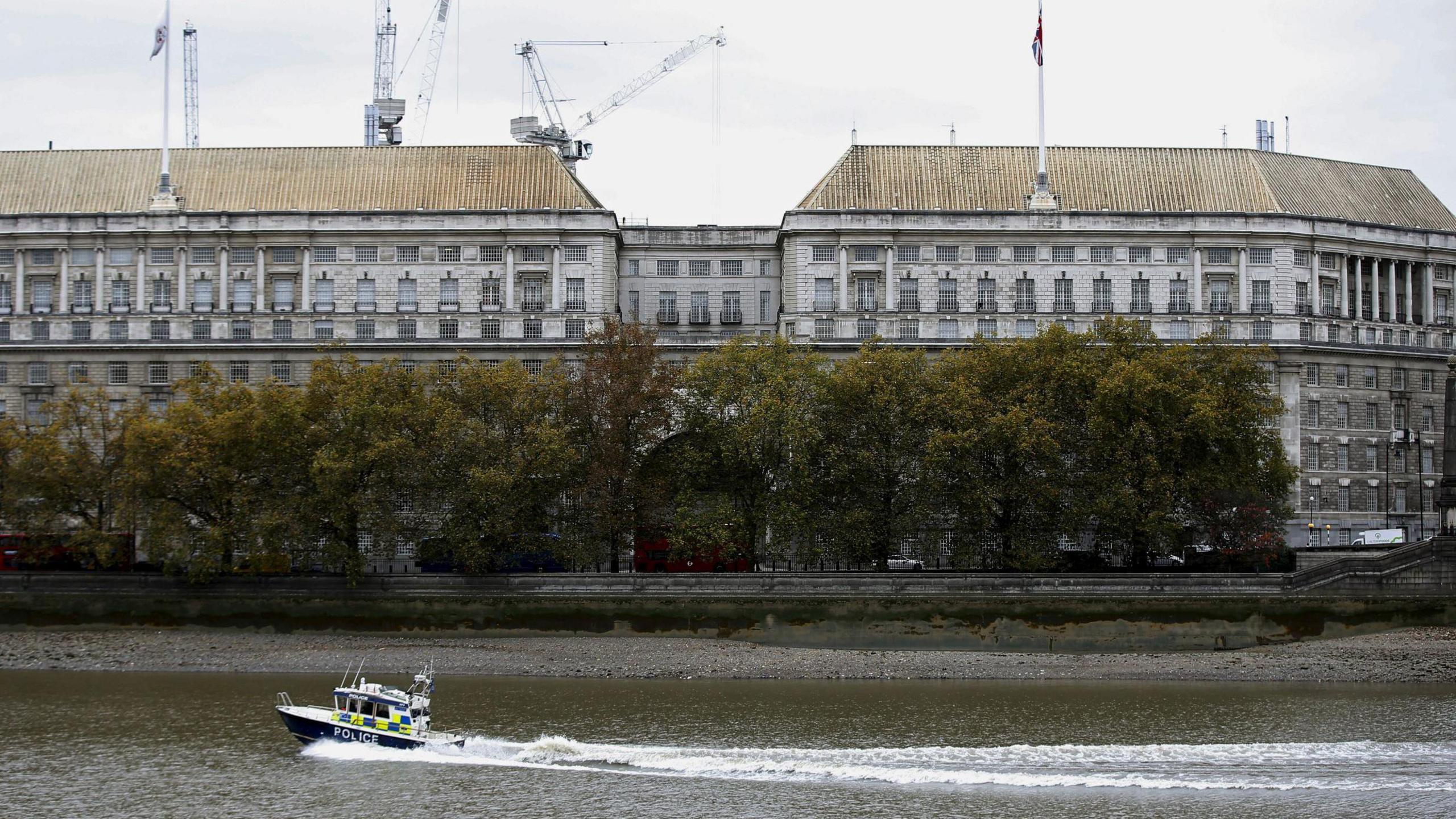
MI5 - based at Thames House - has admitted testimony to court was inaccurate
Witness A said that, during the discussions, I said I had suspected X was a state agent, but that MI5 had "neither confirmed nor denied" whether this was the case.
He did not explain who initiated the discussions - it was MI5. Nor did he say how the Security Service had become aware of the planned BBC story - X had told them.
In my own detailed witness statement, I said this account did not correspond with my recollection in various respects. I did not go into further detail, because - without any waiver of legal privilege - I had been advised by lawyers it would not affect the key issues in the dispute, which centred on the claimed risks to X if he were identified by the BBC.
The BBC team also only had access to parts of the case - some evidence and hearings were in secret.
During one secret part of the proceedings, to which the BBC team and I did not have access, security-cleared lawyers appointed on our behalf were also told by MI5's lawyers that it had maintained its neither confirm nor deny policy in the calls with me.
But I knew that what Witness A said about me in his statement was untrue. I knew that MI5 had not abided by NCND. To be honest, I resented its lie.
We can also now report that MI5 director general Sir Ken McCallum called the BBC director general Tim Davie, in December 2021, to cast doubt on the BBC's planned story about X.
Sir Ken's own notes of the calls, which were served as part of the government's evidence in the 2022 High Court case, record him claiming the intended story was "inaccurate as well as reckless".
However, the story was accurate. The judge found I had taken proper steps to assess whether the story's various elements were true and that it was "comfortably" shown to have a credible evidential foundation.
Despite not being allowed to identify X, the High Court ruled we could report the results of our investigation. It showed that X had abused Beth and another former partner, and that he was a dangerous extremist.
At about the same time, Beth lodged a formal complaint about her treatment by MI5 with the Investigatory Powers Tribunal (IPT), an independent court with the power to investigate human rights claims against the Security Service.
It was at this court where MI5 would lie again.
The IPT often sits in secret without claimants, their legal representatives, journalists or the public present, to consider evidence deemed sensitive for national security reasons. In the case of X, this meant all the information which confirmed he was an MI5 agent.
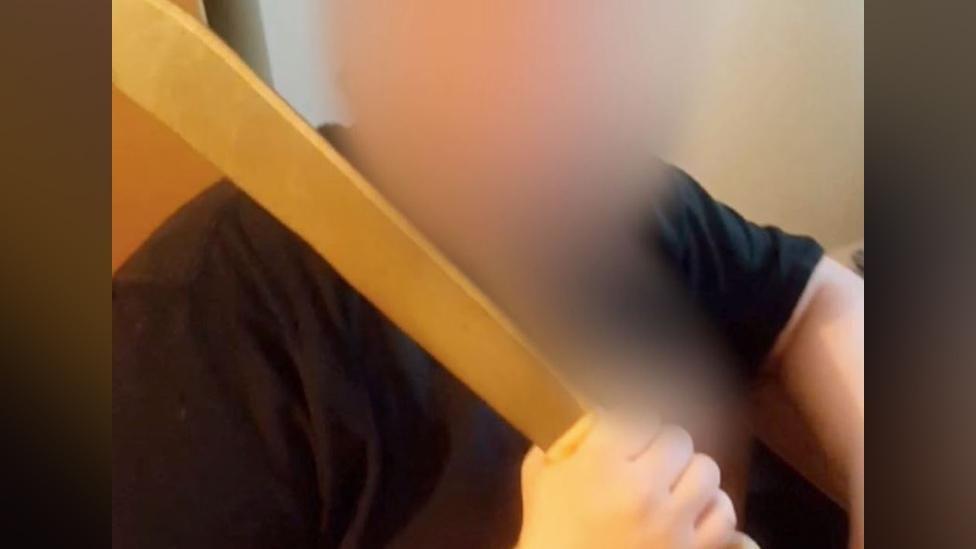
X physically and sexually abused Beth, attacking her with a machete
Lawyers for the IPT are meant to represent the interests of claimants in the closed sessions. But Kate Ellis from the Centre for Women's Justice, who is representing Beth, says the system is inherently problematic.
"You're not entitled to know what's being said about you. There might be things that are being said that you could disprove. You might be being called a liar and you're not entitled to know any of this," she says.
All Beth would be able to know at the end of the case is whether she had won or lost, and she would never really understand why, Ms Ellis says.
Beth asked the tribunal that MI5 drop its policy of neither confirming nor denying. Otherwise, her lawyers argued, most of the case would have to be heard in closed sessions. They said X had already disclosed his role to Beth and used it to coerce her.
But lawyers for MI5 argued it would mean the Security Service being forced for the "first time ever" to confirm to a third party in legal proceedings whether someone was an agent.
Last summer, the IPT ruled against Beth. While it accepted that maintaining NCND had an impact on her right to a fair hearing - because she cannot counter evidence presented in secret - it said the policy "fundamentally relies upon the absolute consistency of its application".
It added that MI5 had "gone to extensive lengths throughout these and the BBC proceedings to uphold the NCND policy".
MI5 repeated its false evidence to a third court when Beth sought a judicial review of this IPT ruling.
From then, I was determined that the truth about MI5's behaviour had to come out. I had first met Beth when she was very unwell in the aftermath of X's abuse and coercion. I knew how far she had come since then and wanted to do right by her.
I began working with a small team of BBC lawyers to develop a strategy.
MI5's big gamble
The truth is that, in several calls with me, a senior MI5 officer had departed from the NCND policy by announcing to me that X was an agent and inviting me to meet him. The officer said he had been legally authorised to tell me the information.
The calls were part of MI5's attempt to persuade me not to identify X as an extremist as part of our planned investigative story. They came after I had sent X a letter, detailing his involvement in violent extremism and giving him an opportunity to respond.
In November last year, after working with the BBC legal team for several months, I wrote to MI5 to say we planned to report that the Security Service had lied to the courts, and that it had departed from NCND during phone calls with me. I did not say how I would prove these claims.
At the same time, the BBC lawyers wrote to the office of the new Attorney General, Lord Hermer, to tell them we planned to apply to the court to make public the part of the MI5 witness statement in which false evidence was given.
On 25 November, a government lawyer responded on behalf of MI5 to me, saying that MI5 "stands by the entirety of the account given to the High Court in Witness A's witness statement".
It said that the Security Service's position remains that "there was no such departure" from the NCND policy and suggested that MI5's evidence had been "carefully considered".
I was surprised by this response. MI5 was gambling that I could not prove what I had set out.
It was a gamble the Security Service was about to lose.
We responded saying that MI5 was invited to a meeting where it could inspect the evidence we would rely on in our court application. We took this unusual step to allow MI5 to consider whether to consent to changing the terms of an injunction put in place at the end of the case against us in 2022.
And so it came to that meeting on 13 December, when the three lawyers acting for MI5 came to the BBC's offices at London Broadcasting House to meet me and the BBC legal team.
They read and listened to the relevant material, which comprised a handwritten note of a first call from MI5, an email I had sent to the MI5 officer following that call, and an audio recording of a second call the next day.
I took the MI5 team through the evidence in chronological order. My impression was that they appeared slightly buoyed when shown a handwritten note, deflated by the email, and defeated when faced with the 40-minute audio recording - as each step revealed our evidence was stronger.
Voluntary disclosure
My handwritten note showed what the purpose of MI5's call was - to tell me that X was an agent.
The MI5 officer who rang me said he had been "authorised" to tell me, something which he said would otherwise have been "illegal".
This information was volunteered to me by MI5, not in response to a query by me about whether X was an agent - which was not something I had asked either to X or to MI5.
I had never spoken to the MI5 officer before. He was not a source or a friend. In fact, as I would find, he was seeking to protect X and gave a false impression about the man's risk to women.
The officer, who worked closely with MI5 director general Sir Ken McCallum, characterised X as someone who was informing on extremists for the Security Service, not an extremist himself.
The phone request was that we should not go ahead with our proposed story because MI5 said it was untrue.
My impression was that MI5 had called assuming I would agree to this request with little further challenge. Instead, during the conversation I took issue with MI5's characterisation of X, whom I regarded - and still regard - as a genuine extremist.
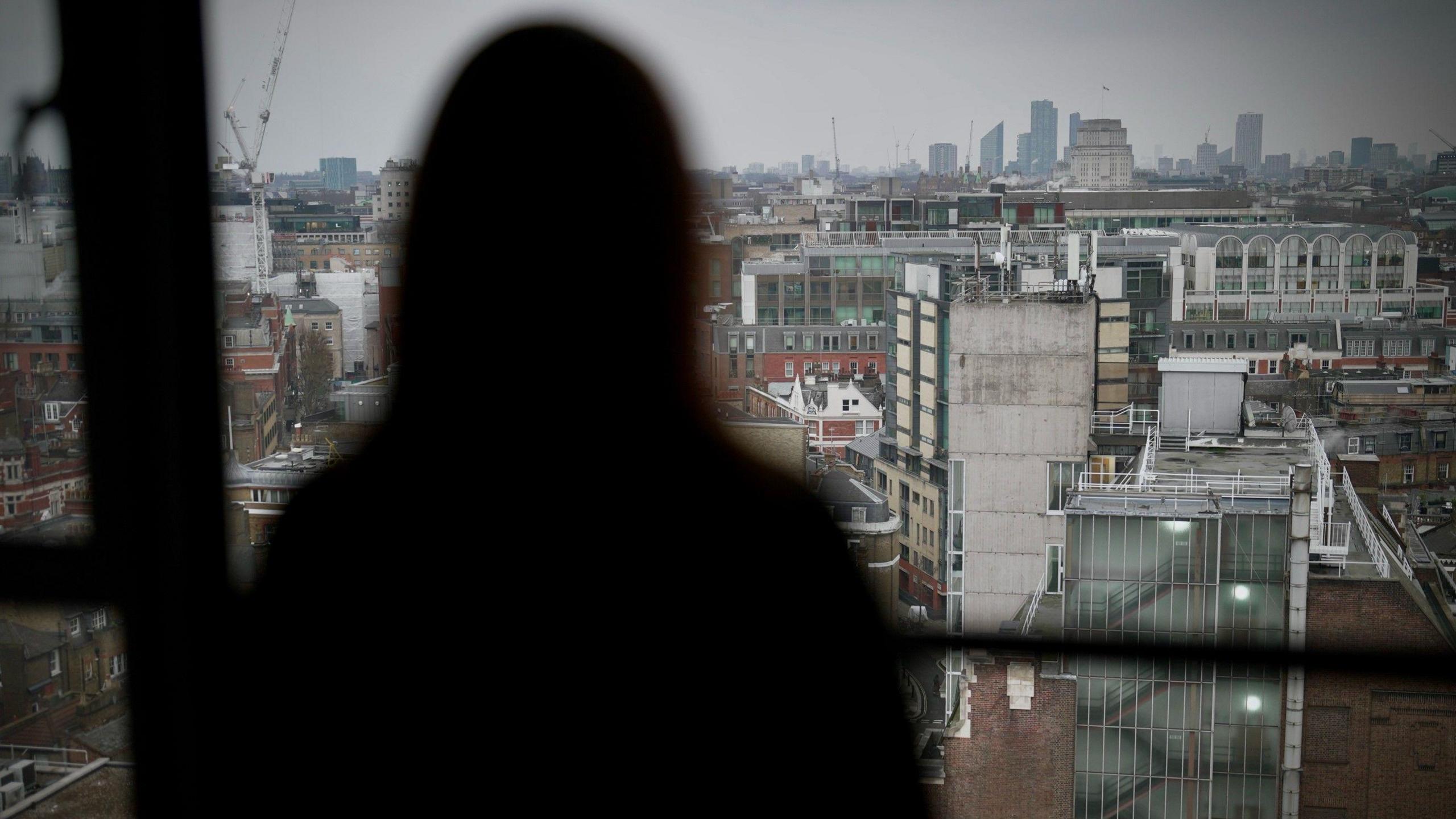
Beth has been seeking answers about how MI5 handled its agent while he abused her
I also raised with MI5 the violence, abuse and coercion that X had engaged in within his personal life. I did not say how I knew about these matters, nor name anyone affected by them. Those matters had not been in my letter to X and I think the MI5 officer was surprised when I raised them.
I made clear how concerned I was about these matters. I was troubled MI5 was seeking to protect someone I regarded as a danger to women, children and the wider public.
The call concluded with me saying I would need to consider what he had requested, including in internal editorial discussions.
The MI5 officer told me he was going to make checks based on concerns I had raised about X. He asked that I send him an email summarising the information about the man's personal conduct which I had mentioned during the phone call.
The email I sent soon afterwards said: "As discussed, the male concerned was and is the subject of allegations of violence and fraud involving a British female. The alleged violence extends up to attempted murder.
"He is alleged to have engaged in domestic abuse and sexual violence, expressed paedophilic tendencies, and caused serious mental harm to people in his life."
The "attempted murder" referred to the machete incident. At that time, I had been told by Beth about the incident but had not seen the video of it. I would later obtain the video and take investigative steps to corroborate what I had been told, something MI5 could have done had it wanted to.
'Strays over the line'
The next day there was a further phone call from the same MI5 officer.
I recorded the conversation for note-taking purposes, in accordance with the BBC's Editorial Guidelines, because I wanted a full record of what was said. I also did not trust MI5.
In the recorded call, the senior MI5 officer claimed the service "pretty strongly assess" that X had not been recently violent. My research would go on to prove this assessment was wholly false and the machete attack had been just the year before.
The officer said: "We do cast serious doubt on the most recent allegations of acts of violence, particularly against that individual."
He emphasised that MI5's assessment was that "we are of the belief that actually he hasn't been involved in recent acts of violence", although he qualified that by saying they could "never categorically say that was definitely the case".
During the call, he also accepted that X was not stable and had been involved in "lots of… drug gang activity" previously, "will have been involved in a bunch of things", and came "from a very shady past", implying he had been violent.
Despite all this, MI5 characterised X's relationship with Beth as "slightly problematic", suggesting she had "mental health issues".
When I wrote to X, I mentioned a vile and alarming online post he had made, about severely sexually exploiting women - using language too offensive to repeat. The MI5 officer claimed that when X had posted this, he had been temporarily de-authorised - meaning he was not at that moment working for MI5.
I explained that, based on what I knew of X, the post was what he was really like, demonstrated his propensity for violence against women, and that was the cause of my concern with him.
The officer accepted the post "strays over the line", but seemed not to understand the obvious logic that, if it had been posted when X was briefly de-authorised, this only demonstrated X's true nature even more. He was a genuinely dangerous misogynist - it was not an act put on for MI5.
The MI5 officer seemed to be most fascinated by how we had worked out X's true identity. I found this surprising, given I was talking to MI5, and explained it was basic journalism. During the call I also told the officer that X had been on a dating site under an alias used for his MI5 work.
I said that I had already been told that X was an informant, separately to MI5's call. The MI5 officer seemed concerned by this information.
However, he also invited me to meet X and learn about his work as an agent. He made this offer twice during the call. I ignored both offers.
My impression was that this was a crude attempt to offer me something exciting - a meeting with an MI5 agent - which would make me forget my concerns. I considered it wholly inappropriate given X's misogyny, sadism, paedophilic tendencies, violence and abuse.
'Materially incorrect'
Five days after the December meeting where we played the recording of the call to the MI5 lawyers, the government wrote to the BBC saying MI5 now took the view its evidence "may be materially incorrect, and that it is important the position is corrected as soon as possible".
The BBC decided the best way to ensure the court and government had the relevant evidence was to make our application to publish the false testimony. The application included a new witness statement from me.
We filed it on Christmas Eve.
MI5 reversed their position entirely in response.
In a new witness statement submitted to court, the MI5 deputy director Witness A said he "sincerely" apologised for giving incorrect evidence.
He said the false information "reflected my honestly held belief at that time, and which accurately reflected the information I was given".
He also said that "it is now apparent to me that MI5 did, in fact, depart from NCND during the discussions".
At this time, he has not explained how he came to give false evidence, despite the government saying two months ago that it was working "quickly" to provide an explanation.
Witness A has not identified who provided the information which he relied on.
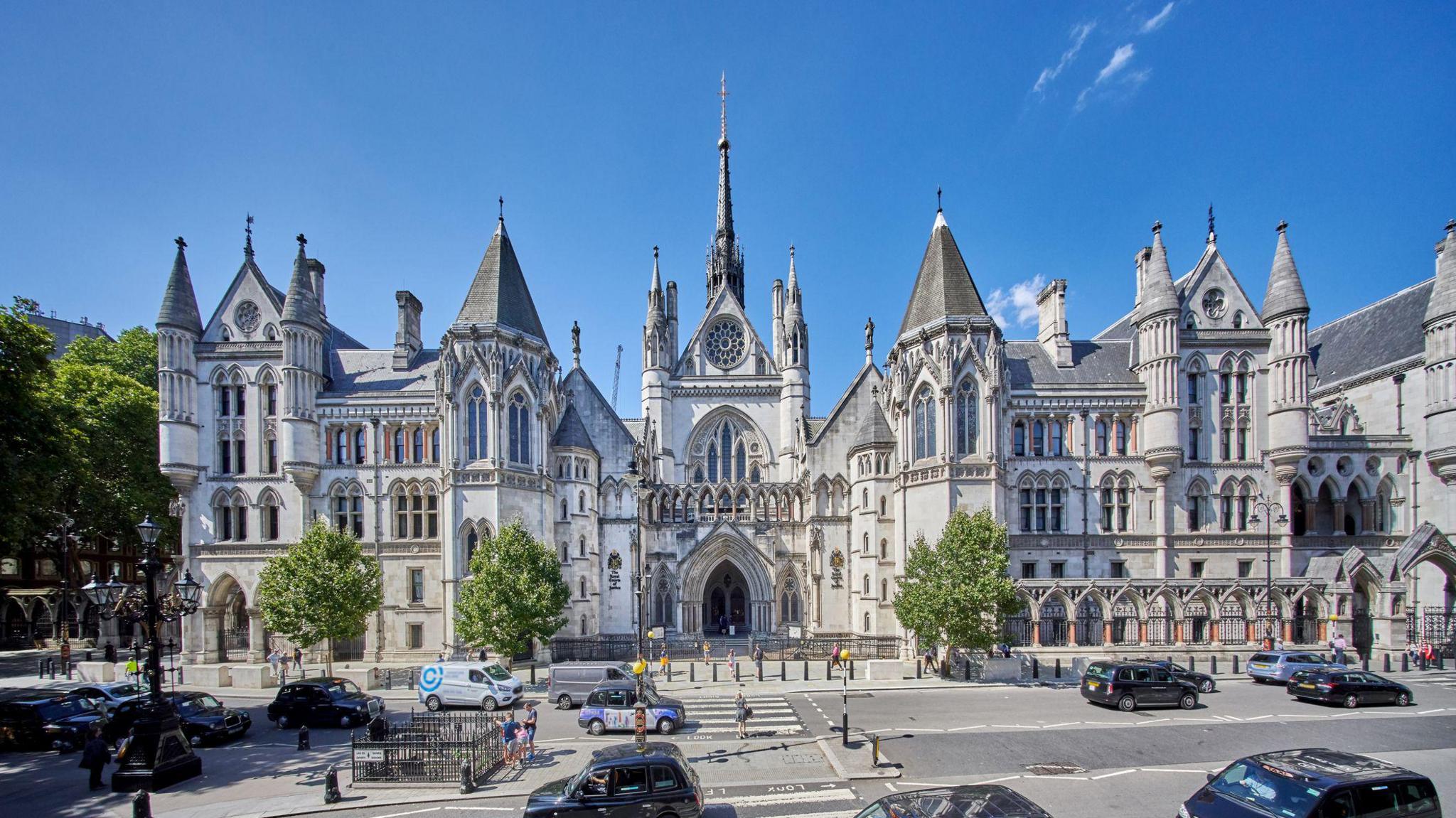
The BBC applied to the High Court to publish the false testimony
There has also been no explanation about who was responsible for authorising the disclosure of X's status to me. Our evidence indicates various MI5 officers were aware of the discussions with me, including case officers and senior counter-terrorism staff.
In addition, the government's policy relating to planned departures from NCND says agencies should inform relevant Whitehall colleagues, including the Cabinet Office, in a "timely fashion".
This means the Cabinet Office and Home Office – as the Whitehall department responsible for MI5 – should have known in advance about the departure from NCND for agent X.
In a statement on Wednesday, the government said ministers and civil servants are not "routinely consulted on private disclosures by the agencies" and that they had not been on this occasion.
The Security Service is conducting an internal investigation and the government has launched an external review recommending changes to ensure courts are provided with accurate information in future.
But there are real concerns about how transparent the two investigations will be. And, if a review now needs to recommend how to ensure MI5 gives accurate evidence to courts, some will wonder what has been happening until now.
'A stone wall'
The question is particularly concerning since courts are required to grant particular discretion to MI5 on questions of national security.
Courts and inquiries dealing with such matters frequently sit in secret, yet deal with crucial issues of liberty, life and death - fatal attacks that were not stopped by MI5, people whose British citizenship has been stripped from them, people ordered to live under strict anti-terror powers.
MI5 has issued an "unreserved apology" to the BBC and all three courts that have been provided with false evidence. "MI5 takes full responsibility," its legal submissions state.
It said it understands the importance of ensuring that any evidence it provides is truthful, accurate and complete.
And it added: "It is acutely conscious of the particular responsibilities that MI5 bears in this regard, and that the court must be able to trust completely any evidence it provides."
These revelations come at a time of increased scrutiny of the NCND policy, following an inquiry into the British state agent known as "Stakeknife", a killer and torturer who informed on the IRA during the Troubles in Northern Ireland.
Security forces and the government have refused to confirm or deny that Stakeknife was Freddie Scappaticci, who died last year, although the fact is well known.
Jon Boutcher, the former head of the inquiry who wrote its interim report, said NCND "seems to have assumed a totemic status" within government and the security forces and to have become "an implacable dogma or mantra with the qualities of a stone wall".
He said the policy "assumes lawful conduct on the part of the security forces", which is "generally a safe assumption", but which may need "external testing and verification".
His report recommended the government should review, codify and define the proper limits of the NCND policy in relation to identifying agents in the context of historic cases in Northern Ireland.
The government has yet to respond to the recommendation.
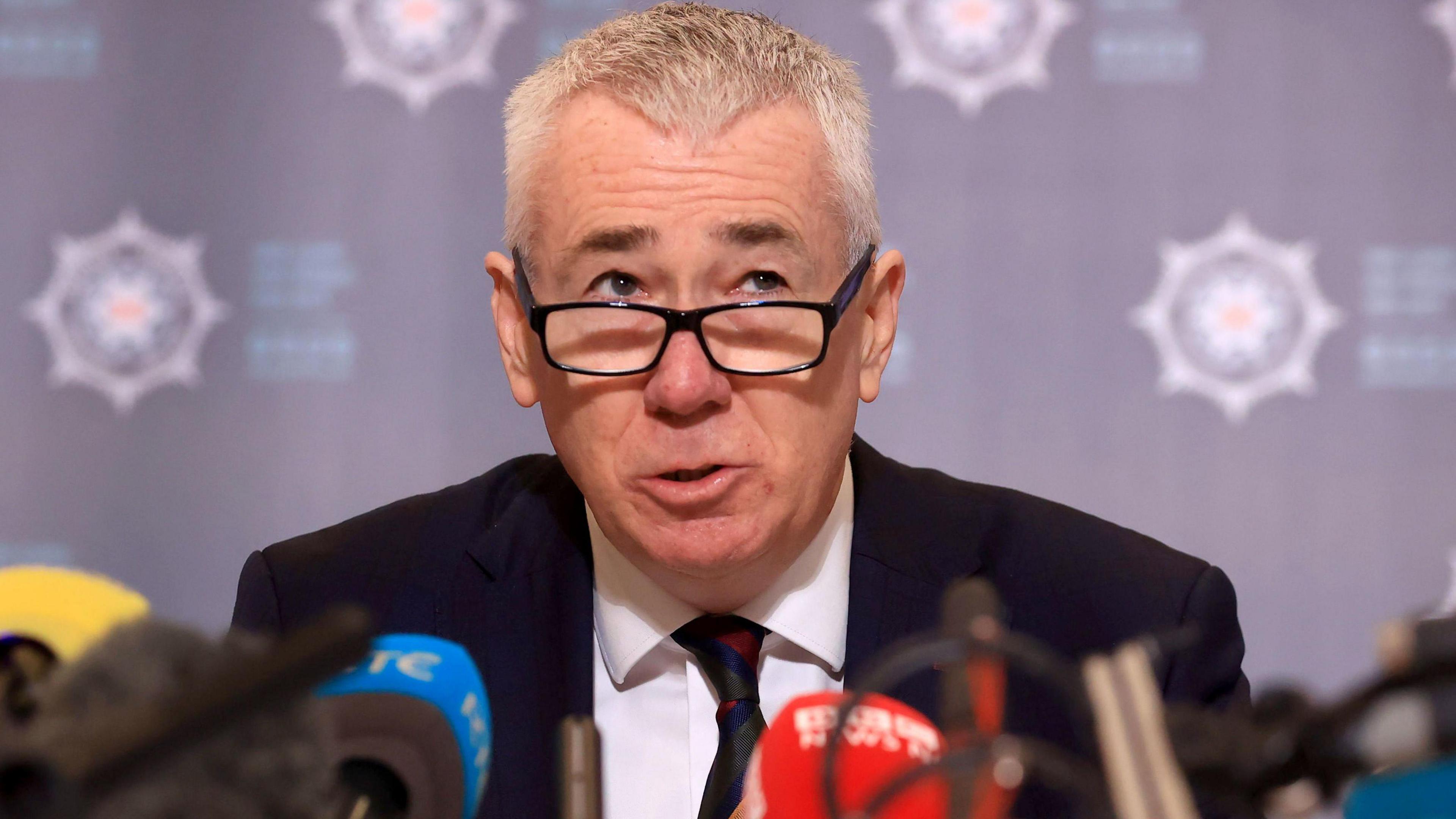
Jon Boutcher said the NCND policy had become an "implacable dogma"
Beth's case already had a wider implication for MI5 in relation to how it assesses and manages agents, particularly those who pose a risk of violence to women and girls.
Now it has taken on wider implication still – about how much MI5's evidence can be taken at face value and relied on, and whether NCND needs to change.
The new evidence shows MI5 has not abided by NCND in the case of X and, in fact, wholly abandoned the policy while dismissing the agent's abusive and extremist conduct.
It shows MI5 knew what kind of person he was, and captures its dismissive attitude to concerns about his abuse and violence.
And it is due to bring to an end to Beth's judicial review case, which had been considering whether MI5 should have been allowed to maintain NCND.
MI5 itself has recommended that decision now be considered afresh by the original court, the IPT.
Beth will return to court, seeking the truth amid official secrets and lies.
If you have information about this story or a similar one that you would like to share with the BBC News Investigations team please get in touch. Please include a contact number if you are willing to speak to a BBC journalist. You can contact us in the following ways:
Email: security.investigations@bbc.co.uk
Signal: +447811921399
Click here to learn how to use SecureDrop, an anonymous whistleblowing tool that works only in the Tor browser and follow the advice to stay secure.
Get in touch
Use our contact details below if you would like to get in touch with us about this story.